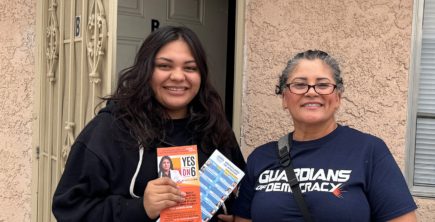
Impact
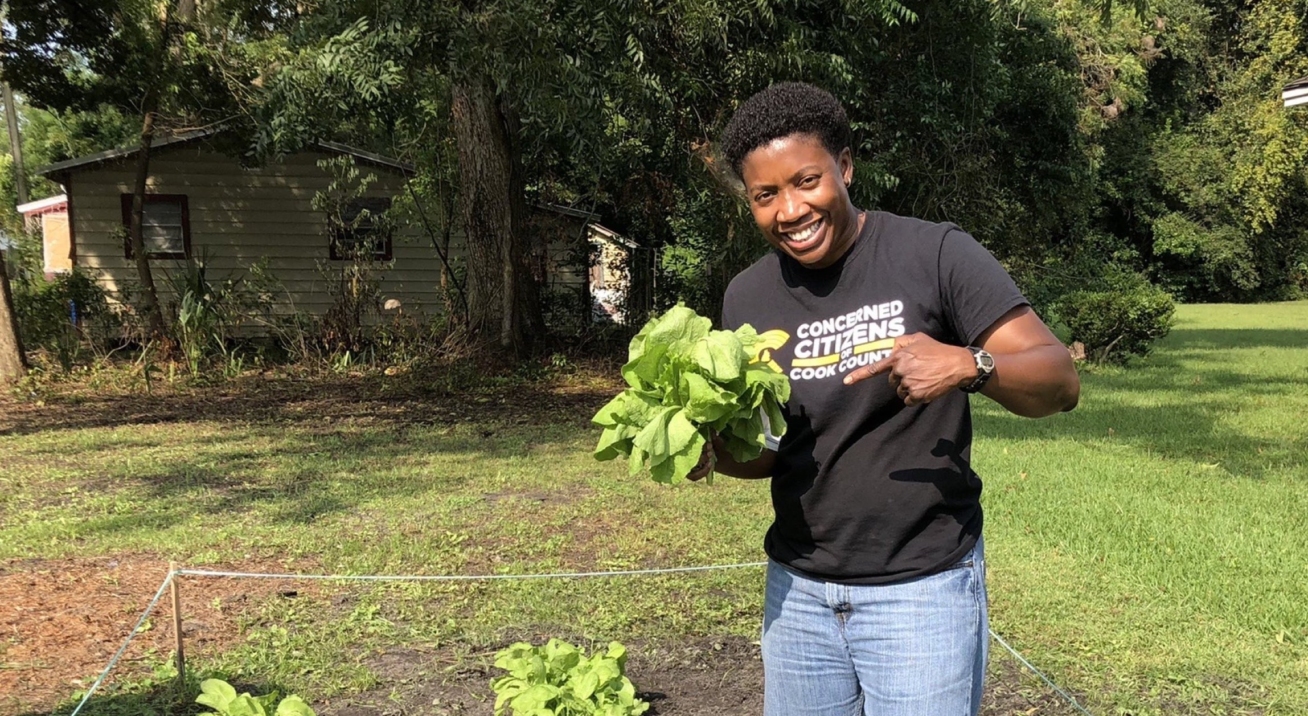
During her many years as a student, Dr. Treva Gear says that environmental racism was never part of the curriculum. “I cared about the community; I was an advocate for the environment. After all those years and a doctorate degree, nobody had ever addressed environmental racism. I’ve been educated along the way.”
In 2020, Gear, an Army veteran and local educator, realized that her hometown of Adel, Georgia, needed to come together to fight for the air they breathe and the water they drink. She founded the Concerned Citizens of Cook County (4C) to join their individual efforts. The grant that the organization received from the Tides Foundation Frontline Justice Fund, a pooled grantmaking initiative that helps communities confront pollution and environmental degradation — enables them to engage in vital campaigns and litigation, Gear says.
A good bit of west Adel, Gear says, is zoned for industry both light and heavy, but as was the case for many in her community, the pollution had seemed normal to her: “Our people — people of color — don’t necessarily recognize it because they’ve always lived by the factory down the road. They’ve always smelled that smell. So they didn’t know they had a right to anything different,” she says. “And then you look to the other side, which is the east side. And there’s none of those things. It’s quiet there, it smells better. It’s left alone and it’s at peace.”
When the Adel City Council voted to annex a 171-acre industrial park area in 2020, and then rezoned that industrial park for heavy industry, it was all to pave the way for the Renewable Biomass Group to build a wood-pellet plant. The proposed site is 1.3 miles upwind of the nearest residents.
Biomass wood-pellet plants can release such pollutants as carbon monoxide, volatile organic compounds, nitrogen oxide, and fine, coarse particulate matter into the air and water. According to a 2018 study, they are most frequently built in low-income communities where more than 25 percent of the residents are people of color. With their health at issue, west Adel residents needed to mount a concerted response and Gear created Concerned Citizens of Cook County, for which she serves as chair, to mobilize community residents.
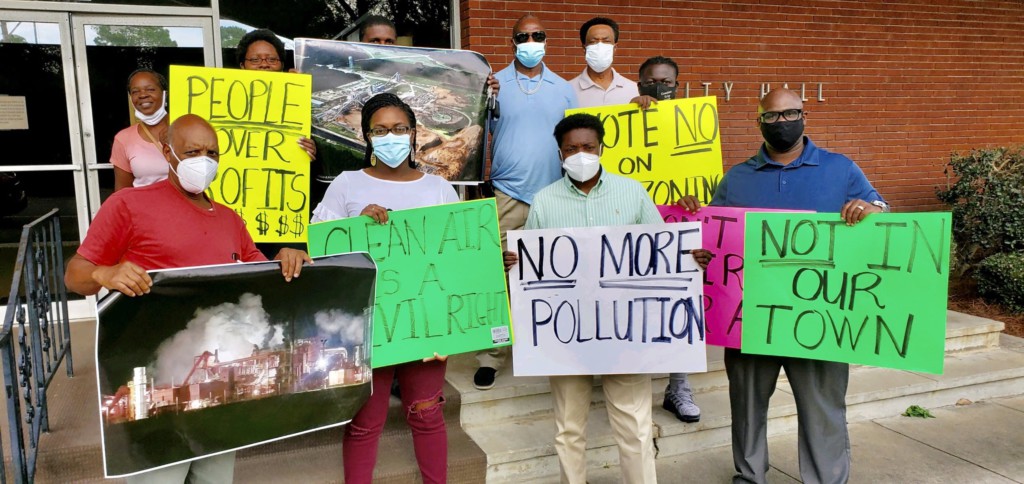
“Clean air and water is a human right. It’s a civil right.” – Dr. Treva Gear (Photo form 4C)
Although the newly formed group rallied against the Renewable Biomass Group plant, they were not able to get the permit revoked. While it has not yet been built, at capacity the Renewable Biomass Group factory plans to produce 450,000 metric tons of wood pellets per annum (MTPA). After transporting the pellets to the port of Savannah, it will export them to overseas markets in Europe, which receives most of the wood pellets manufactured in the southeastern United States. The community was grappling with the potential effect on their environment when scarcely a year later, it happened again: Spectrum Energy Georgia submitted a permit application to construct and operate an even larger wood-pellet facility in Adel, not more than three miles from the first site. This time the community was organized and ready.
The Georgia Environmental Protection Division (EPD) approved Spectrum’s permit too, but 4C quickly filed a complaint against the Georgia EPD arguing that the permit approval violated the Georgia Air Quality Act. They also organized protests and letter-writing campaigns, and after more than a year of 4C’s focused effort, Spectrum negotiated a settlement with the community opponents in January 2023.
Although west Adel would have preferred that the plant not be built, Gear says, the agreement Spectrum signed provides for protections and accountability far beyond what the Cook County residents were likely to have gotten from the Georgia EPD. She mentions this example: “The Georgia Environmental Protection Division only requires that they report their emissions at the end of the year. So at the end of the year it can be found that they over-emitted — put out too many pollutants — and then it’s too late. The damage has been done. With our agreement, they have to check every month.”
Not only does Spectrum have to perform monthly checks, as well as adhere to other requirements including maintaining a public hotline and purchasing air monitors and filters for local residents, the company also agreed that 4C will be an enforcer of the settlement terms, and it will pay $25,000 to a public health and safety fund for any violation of certain commitments.
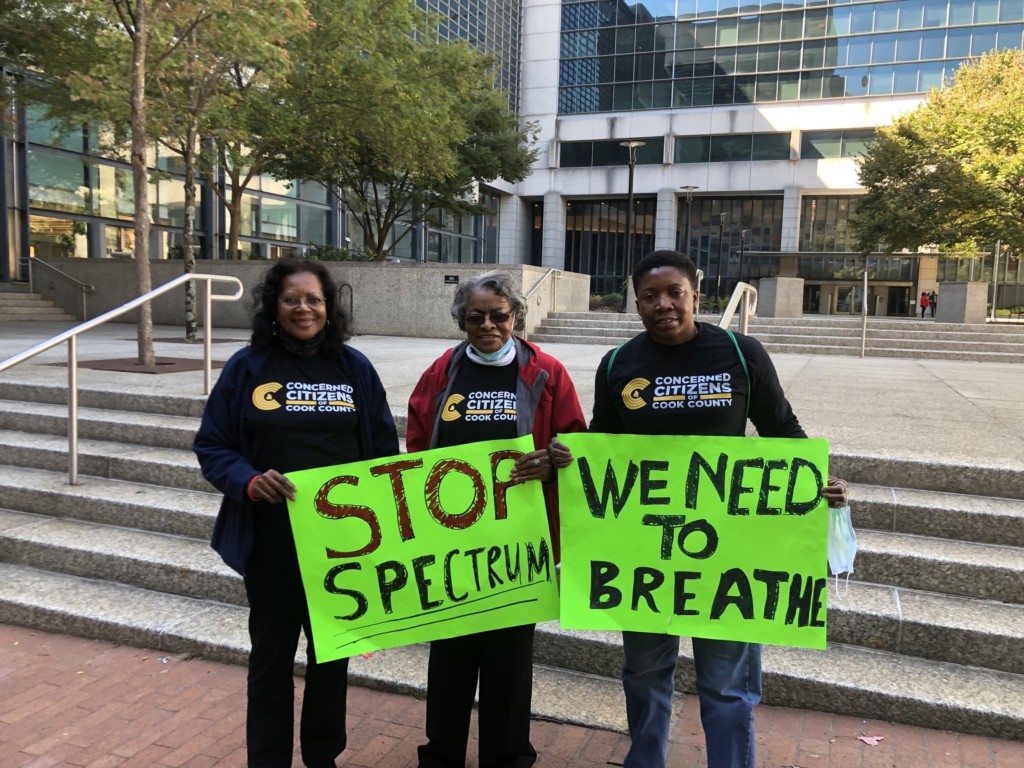
The long-term goal, Gear says, “is not just to address things that concern our Cook County community but also to affect the entire state of Georgia. (Photo from 4C)
Gear feels that in the face of a lax state environmental department and the imminent threat Adel residents were facing, 4C negotiated the best agreement they could. But looking to the future, the Concerned Citizens of Cook County immediately filed a Title VI complaint with the U.S. Environmental Protection Agency against Georgia’s EPD for failing to comply with its obligations under the U.S. Civil Rights Act. The complaint argues that the Georgia EPD failed to consider the racial demographics of west Adel and the undue burden it already suffered from the concentration of heavy industry. While Adel is 44 percent white, the west side’s population is majority Black and Hispanic. According to the complaint, west Adel has one of the highest poverty rates in the state of Georgia and one of the highest rankings for vulnerability to air pollution in both the state and the country.
The long-term goal, Gear says, “is not just to address things that concern our Cook County community but also to affect the entire state of Georgia. The complaint addresses various situations in which the Georgia EPD has granted a permit to an industry to further pollute environmental justice communities like ours across the state.”
In addition to improving the health of communities like hers, Gear says her goal is to bring others to the same realizations that she has had since she embarked on this journey in 2020. “I’ve come a long way, and I’ve been able to enlighten others because most people don’t realize; they don’t understand environmental racism. So this is why these atrocities are able to continue and which is why we push so hard and fight to educate people. Clean air and water is a human right. It’s a civil right.”
Learn more about other community organizers working to protect, repair, and prepare communities to confront environmental and climate legal battles against big polluters causing environmental degradation and injustice.

Impact

Corporate Partners
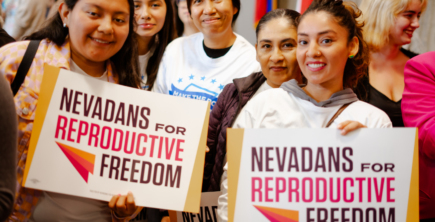
Healthy Democracy Fund

Read the stories and hear the voices of social change leaders fighting for justice.